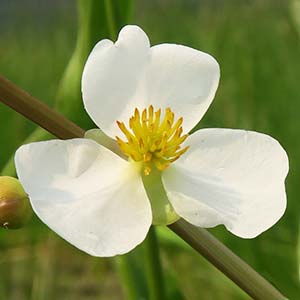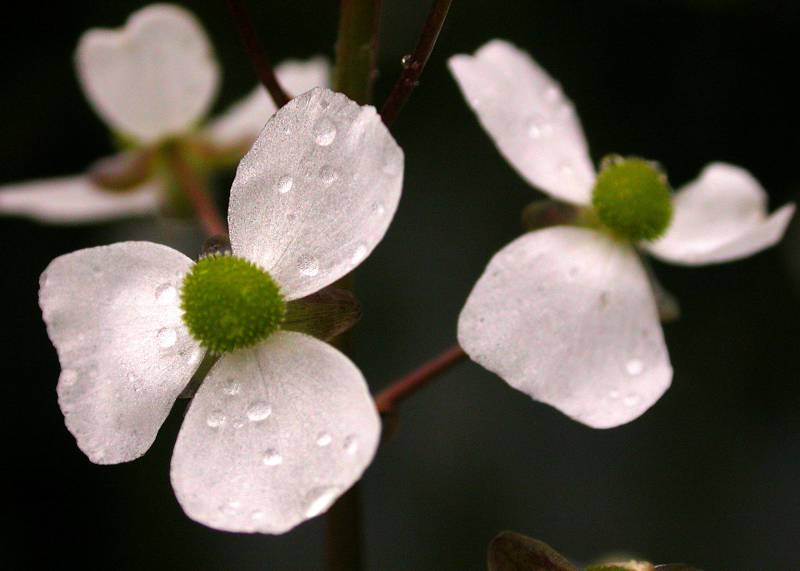Sagittaria latifolia
Sagittaria graminea
common arrowhead, duck potato, wapato
grassy arrowhead
Leaves mostly emersed, but often submerged and the blades floating;
blades sagittate or hastate, up to 2.5 dm. long and nearly as broad; submerged leaves sometimes bladeless and greatly elongate, 4-10 mm. broad.
Flowers in 2-8 whorles of 3 in bracteate racemes, the bracts 5-10 mm. long, blunt, hooded; pedicles 1-5 cm. long, ascending, in both the pistillate flowers (lower whorles) and staminate flowers.(upper whorles), or the plants sometimes monoecious;
sepals 3, 5-10 mm. long, persistent;
petals 3, white, twice as long as the sepals;
stamens more than 20;
pistils many on a globose receptacle.
Achenes 2.5-4 mm. long, winged, with a stylar beak strongly up-turned, 0.5-1.5 mm. long.
Sagittaria latifolia
Sagittaria graminea
- Local floras:
BC,
CA,
OR,
WA
- Local Web sites:
CalFlora,
CalPhotos,
Flora NW,
PNW Herbaria,
Turner Photog.
WildflowerSearch
iNaturalist (observations)
USDA Plants Database
- LBJ Wildflower Center
- SEINet
- Plants of the World Online
- Encyclopedia of Life
- Wikipedia
- Google Image Search



